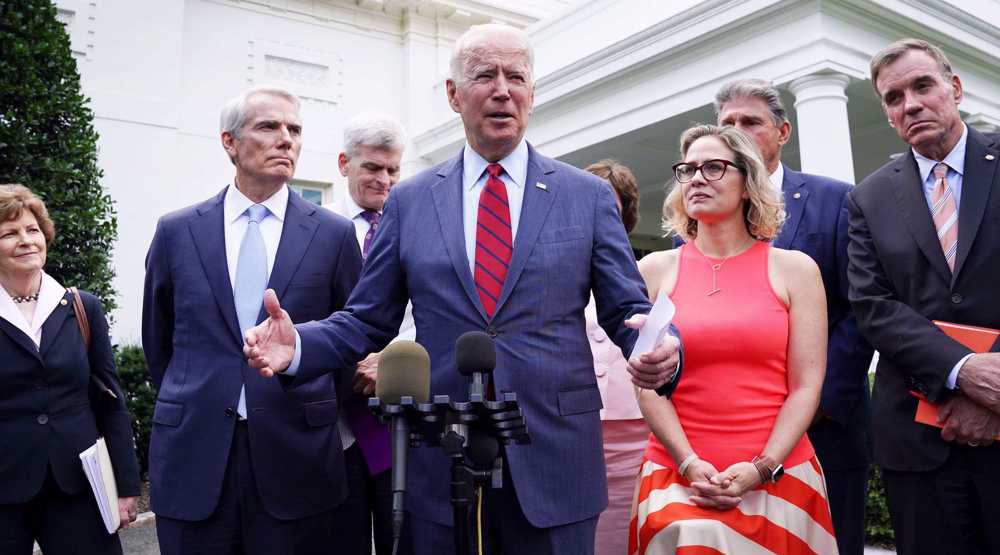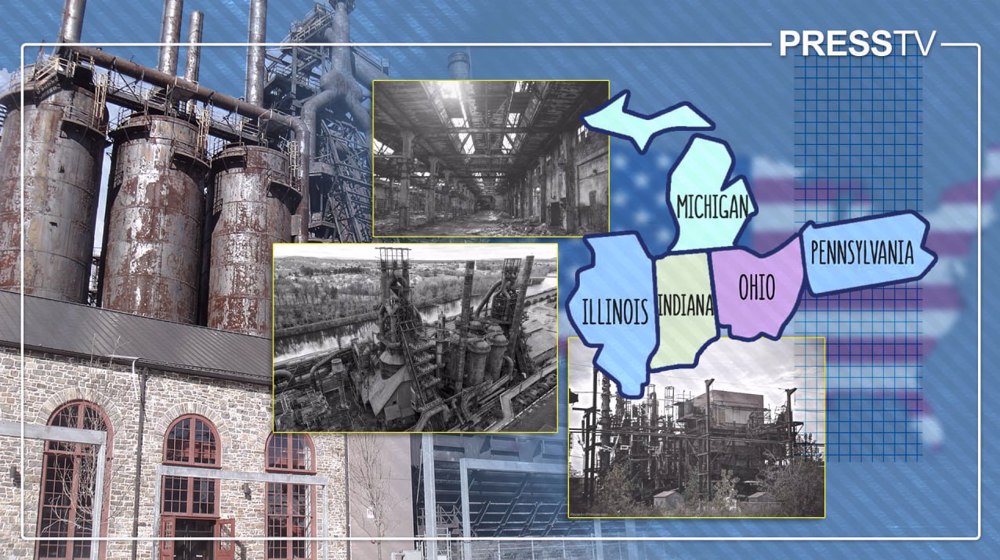Biden infrastructure plan to add $256 billion to US deficit: CBO
The US Senate's bipartisan infrastructure bill would add $256 billion to the federal deficit over 10 years, meaning that nearly half of the package’s proposed new spending could be funded through borrowed money, according to a report by the Congressional Budget Office.
In its latest cost analysis, the CBO estimated that the $1 trillion Infrastructure Investment and Jobs Act would increase the government's net spending by $315 billion while increasing revenues by only $50 billion over 10 years.
When announcing the proposal last week, the White House said it would be funded with more than $250 billion in unspent COVID-19 relief funds, coupled with tax revenues and "other bipartisan measures.”
The White House did not once mention that President Joe Biden’s signature infrastructure policy would add to the nation’s growing debt load.
Senators in the bipartisan negotiating group haggled for months over how to pay for $550 billion in new spending for the infrastructure plan.
After reaching an agreement with the White House, they, too, said much of the bill was already funded. Members in both parties had demanded that the package be fully paid for.
But the nonpartisan budget office in Congress offered a profoundly different analysis of how the infrastructure plan would be funded.
"On net, the legislation would add $256 billion to projected deficits over that period," the CBO analysis reads.
It projected that the funding mechanisms agreed to by the White House and Congress would cover a little more than half of the new spending required to repair the nation’s roads, bridges, ports, transit, and other infrastructure.
Congressional Democrats need to win support from at least 10 Republicans in order to reach the 60-vote threshold to end debate on the bill and avoid a potential filibuster.
Senators, under the chamber’s schedule, are preparing to leave town Monday for their weeks-long August recess, which will last until mid-September. However, they face a lengthy infrastructure fight on Saturday. Unless all 100 senators agree to speed up the process, the debate could keep the chamber in session well into next week.
“We’ve worked long, hard and collaboratively, to finish this important bipartisan bill,” said Senate majority leader Chuck Schumer, just before midnight. In announcing Saturday’s schedule, he said, “We very much want to finish.”
A marathon of votes Thursday to pass a myriad of changes to the infrastructure bill proved it impossible for Senate leaders to get all members to agree to a process. The setback left many supporters of the bill visibly frustrated.
Senator Steve Daines, a Republican from Montana who voted against the infrastructure proposal in a procedural vote last week, vowed to vote against the final legislation, pointing out that lawmakers had "promised the bill would be fully paid for and not increase the debt."
All 50 Democratic senators and 17 Republicans, including Senate Minority Leader Mitch McConnell, voted to advance the bill last Wednesday.
In addition to the infrastructure bill, Democrats are also trying to pass a $3.5 trillion budget resolution to keep the US government afloat. The US hit its debt ceiling on Monday, forcing the Treasury to initiate a series of “extraordinary measures” to pay the bills.
Washington is now facing an intense partisan brawl as it seeks to head off another embarrassing US default on its debts. Republicans in Congress have already made it clear that they will not agree to raise the debt limit as Democrats tee up their new budget.
Israel razes apartments in West Bank, displaces over 40 Palestinians
Russia slams US, Israel over 'destructive policies,' warns strike on Iran could ignite region
UK drops aggravated burglary charges against 18 Palestine Action activists
VIDEO | Palestinian athlete and daughter hope to return to the track despite amputation
VIDEO | Negotiations between Iran and the US
VIDEO | Revolution against domination
Pezeshkian congratulates Muslim nations on advent of Ramadan
VIDEO | Deadlock as Iraqi parliament fails to elect president











 This makes it easy to access the Press TV website
This makes it easy to access the Press TV website